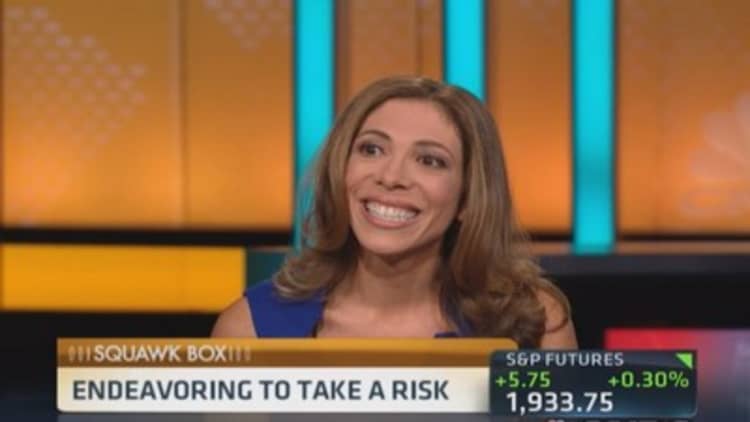As a slew of tech and Internet companies, from Apple to Twitter, release diversity data showing women are massively underrepresented, and horror stories about sexisim in the VC community abound, it's clear that the tech industry has a gender problem.
It's a hot topic among many of the women at Fortune's Most Powerful Women Summit in Laguna Niguel, California. Many here are talking about how to raise the percentage of women who work at, start-up and invest in tech companies.
A number of the women have talked about what feels like a vicious cycle: Just a small percentage of engineers at tech companies are women, which means there's a smaller pool of women to leave and become entrepreneurs.
The problem is on the financing side as well: There are fewer women partners at VC funds, which tend to back more male entrepreneurs. Until there are more women trained as engineers—which could take years to happen—this seems like an unbreakable cycle of limited opportunity for women to break through to the next level of success in Internet and tech companies.
Read MoreMore 'niche' advisors focusing on women's financial empowerment
But the mood at the Fortune conference, which began Oct. 6 and ends Oct. 8, is optimistic. These leaders are finding opportunities to foster the next generation of power players. And they are starting to see a new level of awareness of the problem, and a shift in perspective, from both men and women.
Raytheon's chief information officer, Rebecca Rhoads, says she thinks mentorship is key, as is education. Raytheon is focused on inspiring middle school kids—both boys and girls—interested in math and science. Why middle school? Rhoads says that's when kids start making decisions about what subjects they like and are good at—which could be the key point to seed the next generation of engineers.

One woman working to effect change from the investor side is Sonja Hoel Perkins, managing director of Menlo Ventures, and founder of Broadway Angels, an angel investment group whose 20 members "all happen to be women."
Perkins says she and her colleagues "invest in the best companies and the best people," but of the 30 companies they've invested in since 2010, 52 percent have a woman founder or CEO, a far higher percentage than any traditional VC firm. The members of Broadway Angels are senior women in venture capital with established track records and former c-level executives from companies including LinkedIn, Facebook, eBay and Salesforce. They vote with their own personal checkbooks—not everyone invests in all the same deals, but they share due diligence and deal flow. But the idea is, they'll find the absolute best companies to invest in, because they're more open to pitches by female founders.
Read MoreBet on women with Barclays' new index
"I just think there aren't enough role models," says Perkins of her decision to found Broadway Angels. "Instead of talking about how there aren't women in tech, just show women that there are women in tech." And Perkins says having a female-driven firm is proving to be a competitive advantage: "All the best women want to come to us because they want a women investor—we're definitely more approachable."
Read MorePutting good-old-boy network to the investor test
Meanwhile Hearsay CEO Clara Shih, named to CNBC's "The Next List" of leaders for the next 25 years is trying to impact change starting at her own company.
"We specifically try to recruit women and we are open-minded about women who may not have a programming background," she says.
One of Hearsay's top engineers started in customer support, and after noticing a problem she wanted to fix in the company's systems, she decided to teach herself how to program, Shih recalls.
Yet, the CEO also believes the solution to creating a more diverse tech workforce is starting early—that you have to "catch" young girls to instill confidence with these more male-dominated fields, early on.
Shih graduated No. 1 in computer science at Stanford University, so she—and many of the others here—is certainly a role model.


